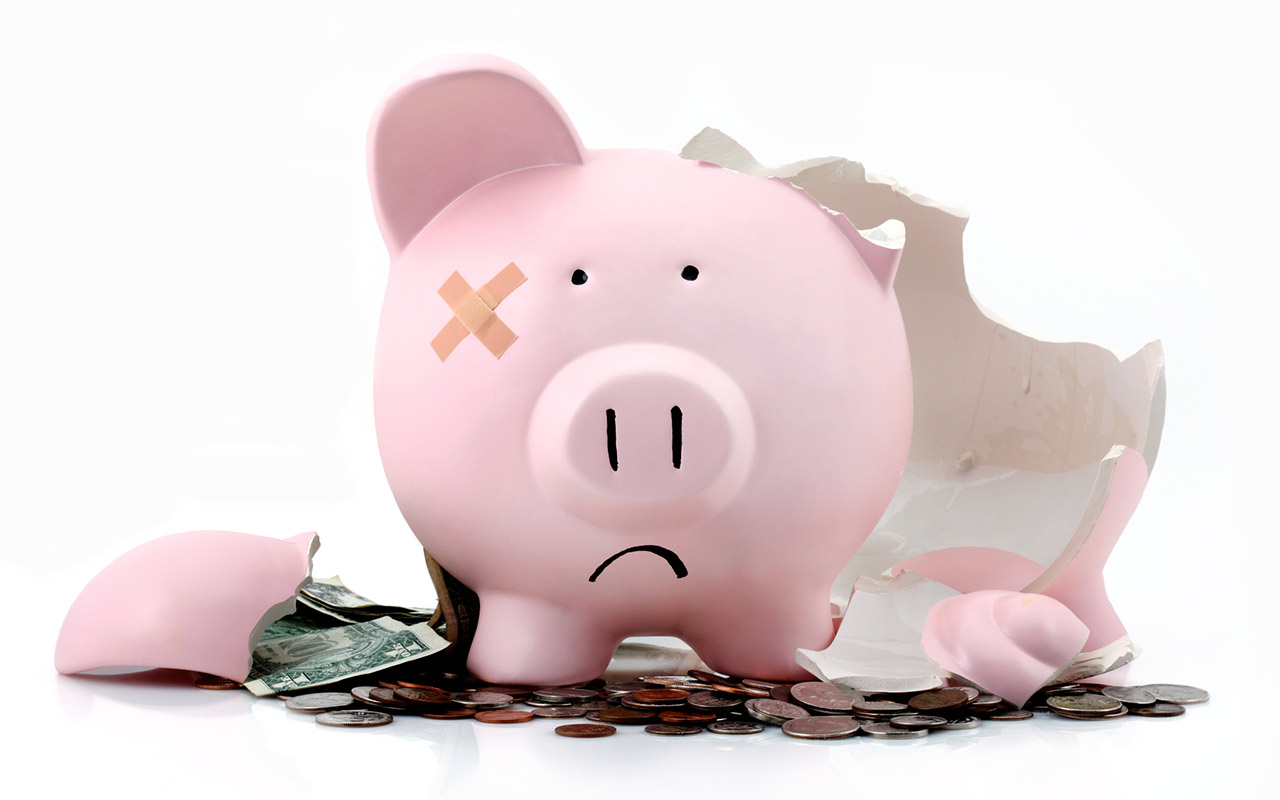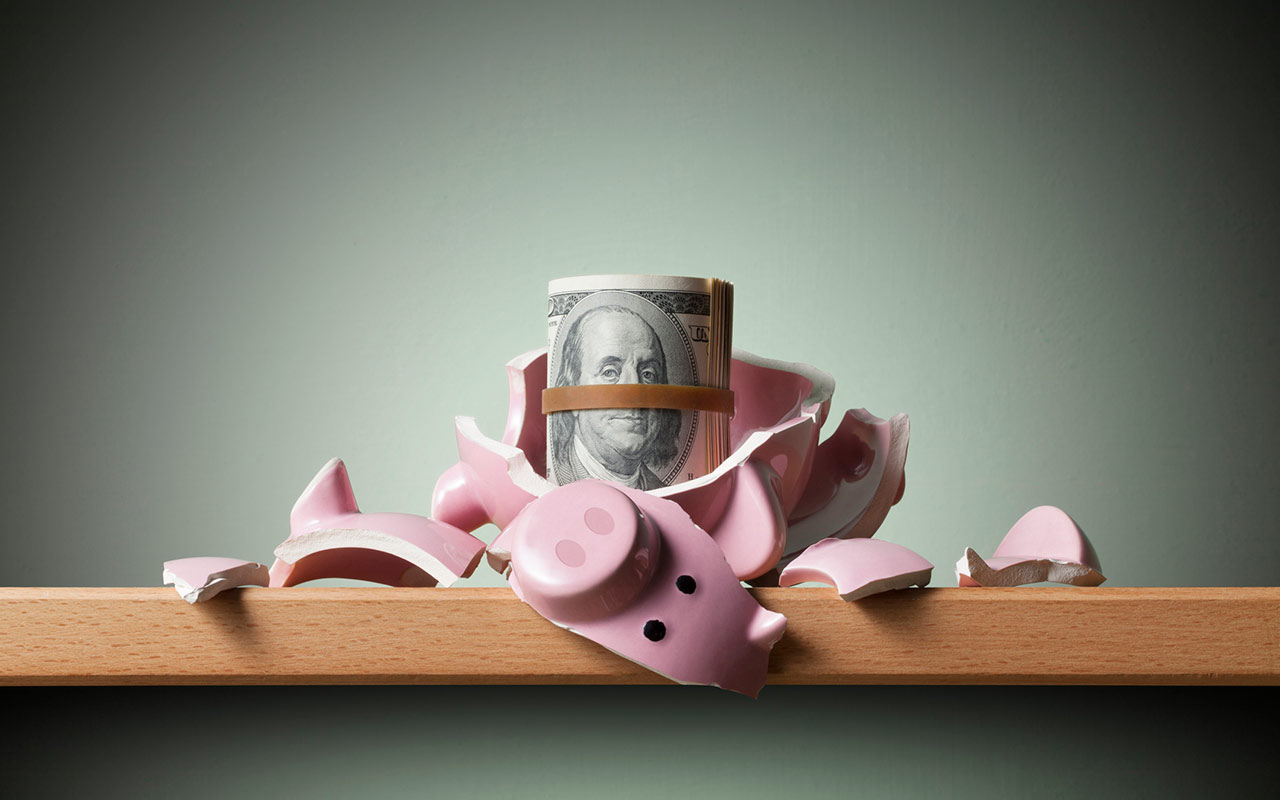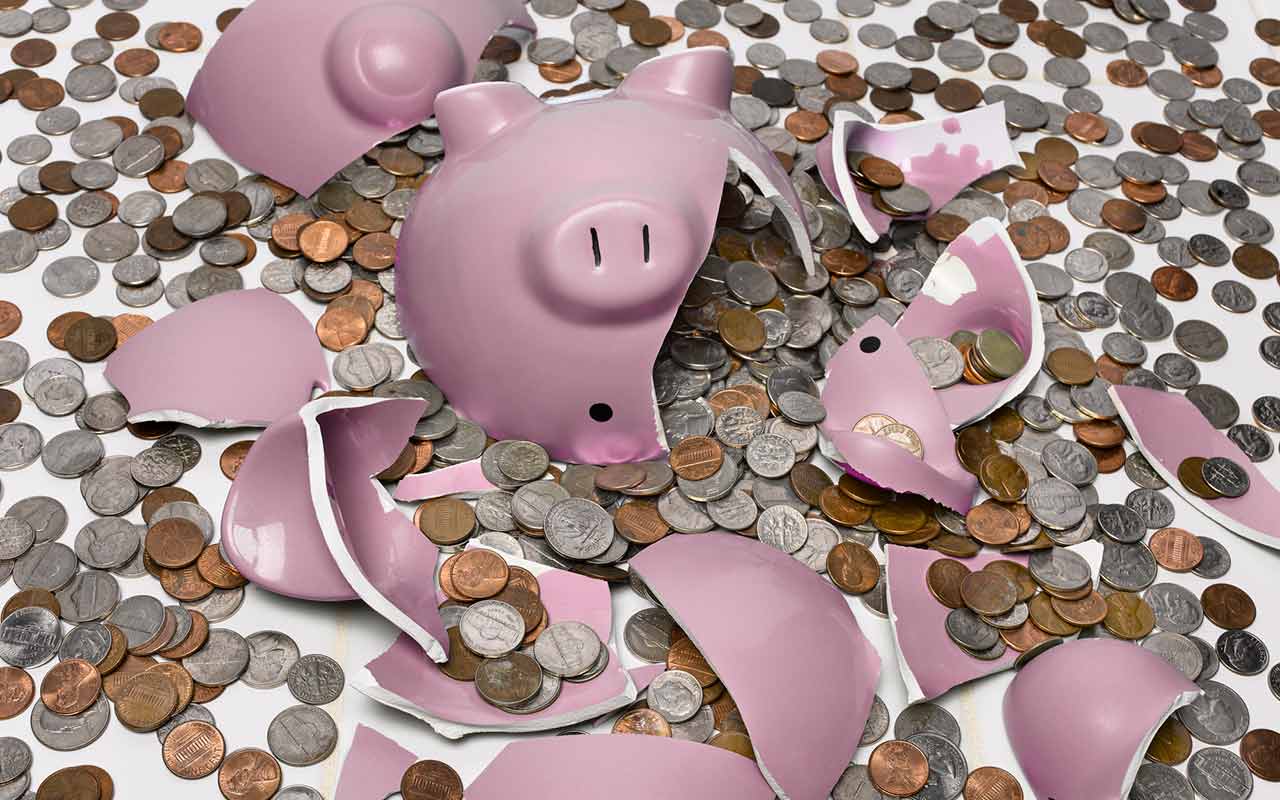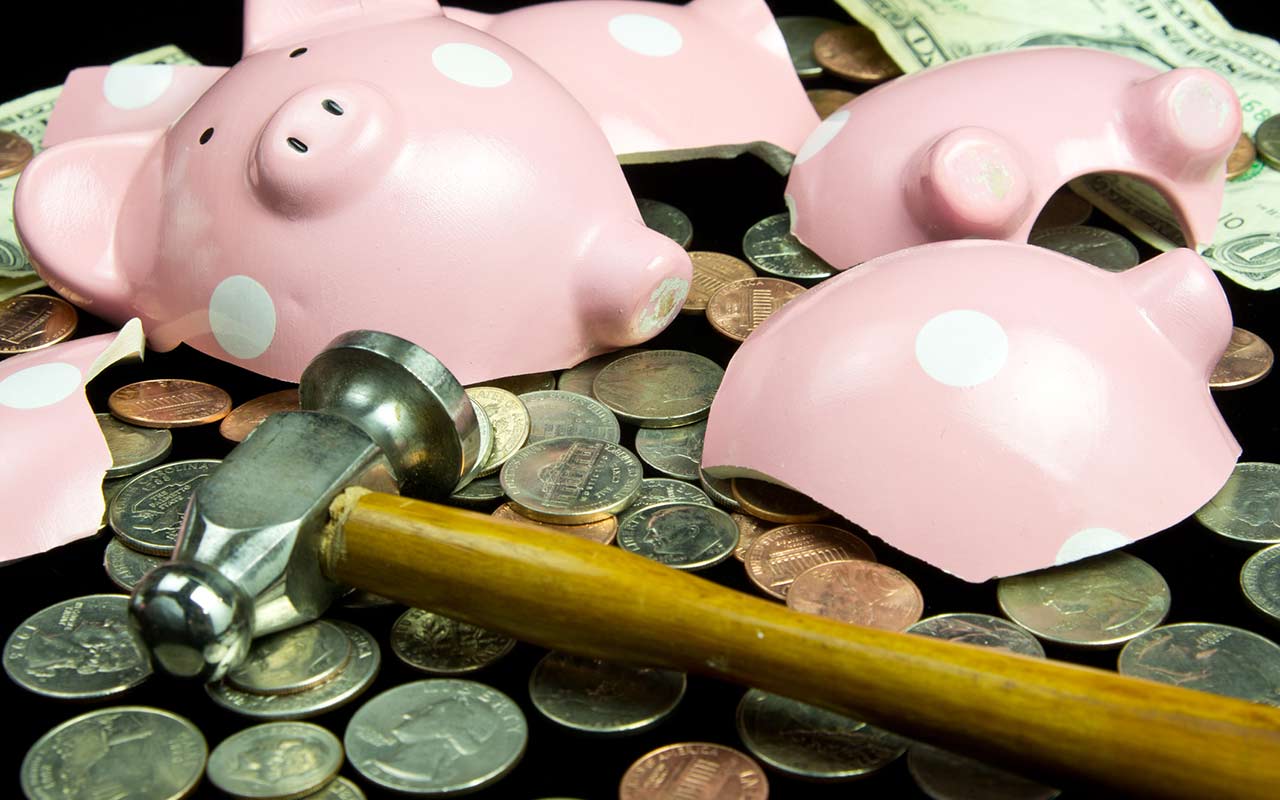9 Ways to Raise Cash Quickly
The $2 trillion coronavirus stimulus package is providing a $1,200 check for millions of Americans.


Profit and prosper with the best of Kiplinger's advice on investing, taxes, retirement, personal finance and much more. Delivered daily. Enter your email in the box and click Sign Me Up.
You are now subscribed
Your newsletter sign-up was successful
Want to add more newsletters?

Delivered daily
Kiplinger Today
Profit and prosper with the best of Kiplinger's advice on investing, taxes, retirement, personal finance and much more delivered daily. Smart money moves start here.

Sent five days a week
Kiplinger A Step Ahead
Get practical help to make better financial decisions in your everyday life, from spending to savings on top deals.

Delivered daily
Kiplinger Closing Bell
Get today's biggest financial and investing headlines delivered to your inbox every day the U.S. stock market is open.

Sent twice a week
Kiplinger Adviser Intel
Financial pros across the country share best practices and fresh tactics to preserve and grow your wealth.

Delivered weekly
Kiplinger Tax Tips
Trim your federal and state tax bills with practical tax-planning and tax-cutting strategies.

Sent twice a week
Kiplinger Retirement Tips
Your twice-a-week guide to planning and enjoying a financially secure and richly rewarding retirement

Sent bimonthly.
Kiplinger Adviser Angle
Insights for advisers, wealth managers and other financial professionals.

Sent twice a week
Kiplinger Investing Weekly
Your twice-a-week roundup of promising stocks, funds, companies and industries you should consider, ones you should avoid, and why.

Sent weekly for six weeks
Kiplinger Invest for Retirement
Your step-by-step six-part series on how to invest for retirement, from devising a successful strategy to exactly which investments to choose.
The $2 trillion coronavirus stimulus package is providing a $1,200 check for millions of Americans. Parents are getting an additional $500 for each child age 16 or younger. The stimulus package also significantly expands unemployment benefits to include part-time workers, the self-employed, and people who ordinarily wouldn’t qualify.
Although both of those initiatives are supplying much-needed cash for many families, the funds may fall short if you’re out of work or furloughed for a prolonged period of time or have big health care expenses. If you’re cash-strapped, you may be tempted to run up credit card debt—but before you do, explore these sources of emergency cash. They could tide you over until the crisis has passed.

A Reverse Mortgage
If you’re age 62 or older and own a home, a reverse mortgage is another way to turn your home equity into cash. But, unlike with a home equity line of credit, you don’t have to repay the loan as long as you live in your home. (If your heirs decide they want to keep the home, they’ll have to pay off the loan first.)
The most popular type of reverse mortgage is the Home Equity Conversion Mortgage (HECM), which is insured by the federal government. You can take out a reverse mortgage as a lump sum, monthly payments or a line of credit. The line of credit may offer the most flexibility, and if you don’t use it, the untapped credit line will grow as if you were paying interest on the balance.

Your Roth IRA
Ideally, you should allow your Roth investments to continue to grow tax-free. But if you need the money, a Roth is a low-cost source of funds. That’s because Roths have a feature that other retirement plans lack: You can always withdraw the amount of your contributions tax- and penalty-free. That money comes out first, so you won’t pay taxes on withdrawals until you’ve depleted your contributions.

Taxable Accounts
You won’t pay an early-withdrawal penalty when you take out money from these accounts, as you do with withdrawals from retirement plans (if you’re younger than 59½). Bond funds or other fixed-income investments in your brokerage account are good options for raising cash, because they probably haven’t declined in value as much as your stock investments, says Daniel Flanagan, a CFP in Framingham, Mass.

A 401(k) Loan
The economic stimulus package enacted in March doubles the amount you can borrow from your 401(k), from $50,000 to $100,000, or 100% of the vested balance. This option is available to workers (or family members) who have been diagnosed with COVID-19 or have suffered adverse financial consequences because of the pandemic.
- The interest rate on 401(k) loans is low — about 5% — and you usually have five years to repay the loan. The stimulus package allows borrowers who have been affected by the pandemic to skip payments for 2020, essentially giving them another year to repay the loan (interest will continue to accrue). If you’re unable to repay the loan within the repayment period, however, it will be treated as a distribution, meaning you’ll owe taxes and, if you’re younger than 59½, penalties on any unpaid balance.

Your Life Insurance Policy
A permanent life insurance policy has two components: the death benefit, which is the amount that will be paid to your beneficiaries when you die, and the cash value, a tax-advantaged savings account that’s funded by a portion of your premiums.
- You can withdraw your basis — the amount in the cash-value account you’ve paid in premiums—tax-free. Just make sure you don’t take out more than the basis in your cash-value account, because the excess will be taxable. The death benefit will be reduced by the total amount you withdraw.
Alternatively, you can borrow against your policy. You’ll pay from about 6% to 8%, depending on market rates and whether the loan is fixed or variable. If you don’t repay the loan, or pay back only part of it, the balance will be deducted from your death benefit when you die.

A Retirement Plan Withdrawal
Ordinarily, withdrawing money from a 401(k) or traditional IRA should be an absolute last resort, because you must pay taxes on the money, plus a 10% early-withdrawal penalty if you’re younger than 59½ (or 55 if you leave your job and take a withdrawal from your 401(k) account).
The stimulus package includes provisions that will make such withdrawals a little less painful — although you should still avoid them until you’ve explored all other options. Through December 31, you can withdraw up to $100,000 from your traditional IRA or employer-provided retirement plan without paying the 10% early-withdrawal penalty.
You’ll still owe taxes on the money, but the law allows you to spread the tax bill over three years. You can also repay the amount of the distribution over three years. As with enhanced 401(k) loans, you will need to certify that you have suffered hardships because of the pandemic.

Your Health Savings Account
Rose Swanger, a CFP in Knoxville, Tenn., usually recommends that clients let HSA money grow tax-free until they have retired, instead of using the funds for current out-of-pocket medical expenses. But “desperate times call for desperate measures,” she says. You can use money in your HSA for a variety of medical expenses that aren’t covered by insurance, from dental work to co-payments. Better yet, if you lose your job, you can use money from your HSA to pay premiums under COBRA, the federal law that lets you continue group coverage after you leave your job. You can also use money from your HSA to pay health insurance premiums while you’re receiving unemployment benefits.
Don’t take money out of your HSA for nonmedical expenses unless you have exhausted all other options. If you withdraw money from your HSA for a nonqualified expense before age 65, you’ll pay taxes and a hefty 20% penalty.

Your Child’s 529 College-Savings Plan
If at all possible, you’ll want to leave this account alone to pay for college expenses. But if you really need the money, the penalties for withdrawals from 529 plans aren’t as severe as they are for other tax-advantaged accounts. When you withdraw money from a 529 plan, the earnings portion will be taxed, plus you’ll pay a 10% penalty on the earnings. Some states may impose an additional penalty on earnings (in California, it’s 2.5%). However, your contributions won’t be taxed or penalized because they were made with after-tax money.

A Home Equity Line of Credit
If the value of your home has been heading steadily higher, you may be able to take out a home equity line of credit to tap your equity. With a HELOC, you can borrow up to your limit whenever you need the money. Interest rates are low — averaging about 5% — and you can make interest-only payments until the initial withdrawal period ends, typically after 10 years. Unfortunately, this lifeline may be getting shorter. Several major financial institutions, including JPMorgan Chase and Wells Fargo, temporarily stopped accepting applications for new HELOCs in April, citing uncertainty in the market.
When you apply for a HELOC, lenders will look at your credit score, the amount of equity you have in your home, and your income. For that reason, if you’re still working, it’s a good idea to apply for a HELOC even if you’re not sure you’ll need it. Once you’re unemployed, it’s difficult to qualify for a loan, says Danielle Harrison, a certified financial planner in Columbia, Mo.
Profit and prosper with the best of Kiplinger's advice on investing, taxes, retirement, personal finance and much more. Delivered daily. Enter your email in the box and click Sign Me Up.

Block joined Kiplinger in June 2012 from USA Today, where she was a reporter and personal finance columnist for more than 15 years. Prior to that, she worked for the Akron Beacon-Journal and Dow Jones Newswires. In 1993, she was a Knight-Bagehot fellow in economics and business journalism at the Columbia University Graduate School of Journalism. She has a BA in communications from Bethany College in Bethany, W.Va.
-
 Dow Absorbs Disruptions, Adds 370 Points: Stock Market Today
Dow Absorbs Disruptions, Adds 370 Points: Stock Market TodayInvestors, traders and speculators will hear from President Donald Trump tonight, and then they'll listen to Nvidia CEO Jensen Huang tomorrow.
-
 Quiz: Do You Know How to Maximize Your Social Security Check?
Quiz: Do You Know How to Maximize Your Social Security Check?Quiz Test your knowledge of Social Security delayed retirement credits with our quick quiz.
-
 Will You Get a Trump Tariff Refund in 2026? What to Know Now
Will You Get a Trump Tariff Refund in 2026? What to Know NowTax Law The Supreme Court's tariff ruling has many wondering about refund rights and how tariff refunds would work.
-
 States That Tax Social Security Benefits in 2026
States That Tax Social Security Benefits in 2026Retirement Tax Not all retirees who live in states that tax Social Security benefits have to pay state income taxes. Will your benefits be taxed?
-
 What to Do With Your Tax Refund: 6 Ways to Bring Growth
What to Do With Your Tax Refund: 6 Ways to Bring GrowthUse your 2024 tax refund to boost short-term or long-term financial goals by putting it in one of these six places.
-
 What Does Medicare Not Cover? Eight Things You Should Know
What Does Medicare Not Cover? Eight Things You Should KnowMedicare Part A and Part B leave gaps in your healthcare coverage. But Medicare Advantage has problems, too.
-
 12 Great Places to Retire in the Midwest
12 Great Places to Retire in the MidwestPlaces to live Here are our retirement picks in the 12 midwestern states.
-
 15 Cheapest Small Towns to Live In
15 Cheapest Small Towns to Live InThe cheapest small towns might not be for everyone, but their charms can make them the best places to live for plenty of folks.
-
 15 Reasons You'll Regret an RV in Retirement
15 Reasons You'll Regret an RV in RetirementMaking Your Money Last Here's why you might regret an RV in retirement. RV-savvy retirees talk about the downsides of spending retirement in a motorhome, travel trailer, fifth wheel, or other recreational vehicle.
-
 The 24 Cheapest Places To Retire in the US
The 24 Cheapest Places To Retire in the USWhen you're trying to balance a fixed income with an enjoyable retirement, the cost of living is a crucial factor to consider. Is your city the best?
-
 The Six Best Places to Retire in New England
The Six Best Places to Retire in New Englandplaces to live Thinking about a move to New England for retirement? Here are the best places to land for quality of life, affordability and other criteria.
